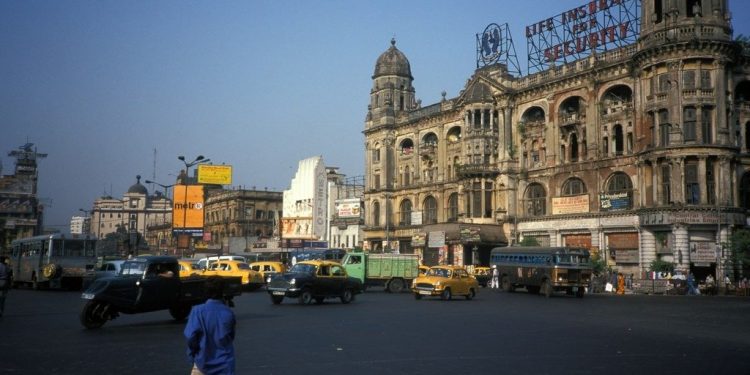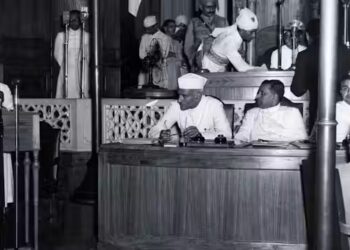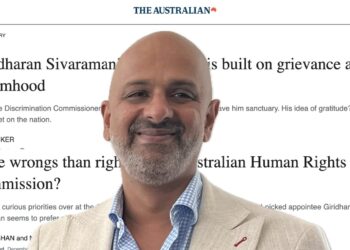Saleha Singh
Remember the time when saving taxes in India meant buying a Life Insurance Corporation of India policy? Hands up if you read the fine print while signing your life away? No, neither did we!
Like many young couples trying to save taxes and also raising a small child, my husband and I bought many, many (read 10) LIC policies, hoping it will come to use in the future. Not having worked in the public sector, I was lured into buying a retirement policy by our colony LIC-agent uncle. I knew I wouldn’t get a pension, so this policy was perfect. In my euphoria, I happily signed on the dotted line, thinking that a return of ₹9820 per month—yes, I still remember the amount after all these years—would be great.
Over the years and even after we moved to Melbourne, we paid our LIC policies on time, every time. Then in 2017 we received an email from LIC advising us that my retirement and my husband’s policies were maturing in June. Since I was going to Delhi in November, this was perfect timing. Now begins the story!
Day 1 – It’s my birthday today, and I start my special day with a trip to LIC. I land at the Nehru Place office after travelling an hour in peak Delhi traffic. No one’s at the counter. At 10 am the counter opens and I’m first in the queue. The receptionist hands me some forms and asks me to sign. He’s very helpful—checks the forms and my original papers and signs off on it. Next my husband’s matured policy – I tell him he’s not with me, so can sign ‘for xxxx’? “No need, just sign for him.” So, I forge my husband’s signature and am sent to deposit the papers to Chakravartyji.
I find Chakravartyji who accepts my husband’s paper, signs off on it for processing, but hands my papers to Gujralji. While I wait, Gujralji shakes his head.
“Can’t process this, madamji.”
“Why,” I ask? “All the papers are intact.”
“No, you haven’t attached your NEFT form, Aadhar card, and Form 16 (Tax Deductible at Source).”
“But I can’t give you any of that – I don’t live here.”
“No madam, can’t do.”
This goes on for over an hour. I can’t make Gujralji understand that I’m an NRI, in spite of my cancelled cheque leaf showing my NRO account. It’s now past 12 noon. My 84-year-old father is sitting waiting with me, trying not to lose his temper.
“Madam, we need Form 16, which you can get from Sharma’s stationery shop in Connaught Place.”
We go looking for the non-existent Sharma’s stationery shop. A helpful bystander tells us there’s one in Green Park, so off we go. It is now past 3pm. At Sharma’s Stationery shop we’re told Form 16 is unavailable.
“Check online,” suggested the attendant.
I go to my friend’s place close by and we find the online form. But wait, it’s only for Indian citizens, who have had an income for the past 12 months in India.
It’s past 7pm now and my birthday dinner—so meticulously planned by my brother—isn’t looking appetising anymore. After 30 years I was celebrating my birthday with my family.
Day 2 – I’m back at the LIC office after travelling for 2 hours—a distance of only 17 kms from my brother’s place. Gujralji is busy. I wait for another hour and tell him my predicament. He’s most unhelpful, insists that without Form 16 he can not process any papers. The lady sitting next to him munches on peanuts and laughs, listening in to the conversation. After what seems an eternity Gujralji says he’ll process my papers if my bank has no objection to receiving my payment. I am incredulous—why won’t the bank accept the money?
“I need a letter from your bank,” is the final answer.
My bank is in Noida and although a distance of 13 kms, I know I will be spending much of my time in the traffic.
My bank manager is aghast at Gujralji’s request—they’ve never had one like this before. A letter is given and I’m back at Nehru Place. It’s 4pm and Gujralji has left for the day with a message asking me to see him sharp at 10 am the next day.
Day 3 – I’m at the LIC office well before time. Today my 85-year-old father-in-law is accompanying me. At 11am we are still waiting for Gujralji to turn up. At 12pm we are told he’s not coming in today but wants me to get a letter from my Chartered Accountant about my income proof in India. I am way beyond angry! My father-in-law—a very patient man—drives me to his accountant’s office. For the next few hours, we’re trying every form online, which fits my purpose—none is available. Wasted day!
Day 4 – I call the LIC office at 10 am but the phone rings out. I’m on a pre-paid Indian mobile number and keep re-dialling. At 12pm someone picks up and says Gujralji is at work and would see us. We drive to Nehru Place after two hours in the traffic. Gujralji says he can’t process my papers without proof of my income in India. My father-in-law calls his friend and gets the number of the General Manager. She will see us at 10am the next day. Gujralji doesn’t bat an eyelid!
Day 5 – We are in the car by 8.30 am for 10 am meeting. At Nizamuddin Bridge during peak traffic an auto hits our car from behind. Thirty minutes wasted with both drivers arguing. What a start to the day!
We get to Connaught Place in time and meet the General Manager who listens to my grievance, checks my papers, and calls Chakravartyji, and asks him to process my papers. She tells him that there have been too many complaints about Gujralji, and this was the final warning.
“All done,” she says. “You’ll receive ₹5069 every month for the next 20 years.”
“What?” I ask. “It’s supposed to be ₹9820.”
“No,” she says. “Those are only projections.”
I’m relieved that this story is behind me. For the past two years LIC is diligently crediting the princely sum to my account on the first of every month.
Last month LIC sent us an email saying two of our policies are maturing in December. My husband spoke with Kanchanji twice who said, “Don’t worry, Sir, give me a missed call and I will call you back.” It’s only been two months and we are waiting. Watch out for this space for more news on my tryst with LIC!
Saleha Singh is a Communications professional and freelance writer who loves to tell stories. Her passion, however, lies with discussing South Asian community issues, which she broadcasts from her bi-weekly webcast, Chai, Chat & Community. She is also on the Board of IndianCare and PeaceMeals – two Not for Profit organisations – where she gives her time pro bono.
The views and opinions expressed in this article are those of the authors and do not necessarily reflect the editorial views or position of NRI Affairs.











